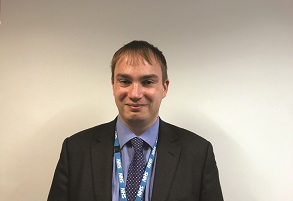Feature / Under starter’s orders
Following pilots last year, the full launch of the new HFMA qualifications marks a significant step for the association.

Launched last year with a pilot exercise, the HFMA qualifications in healthcare business and finance have reached a landmark with the first cohort of students joining the course. The training, which could lead to an MBA, allows NHS professionals to study for a dedicated qualification in healthcare business and finance.
Aimed at clinicians, finance staff and other healthcare professionals, the programme went live in May with 16 students – mostly finance staff, but also clinicians and other NHS managers – and there has been a lot of interest from NHS professionals hoping to begin study in September.
Initially, there are two masters-level qualifications, the HFMA diploma and higher diploma. Each is worth 60 credits – by completing three 20-credit modules – and successful completion may allow a student to move on to complete an MBA (worth a further 60 credits), which is being developed by the HFMA’s partner BPP University.
Already a successful and long-established provider of e-learning, the new diplomas mark a milestone for the HFMA as an education provider. ‘It’s a whole new area for us and a completely different ball game compared to what we have done before,’ says HFMA director of education Alison Myles.
They are deliberately modern qualifications, she says, building on the ethos of the HFMA e-learning courses by offering flexible, online study designed to fit into the busy lives of those working full-time in the NHS. As well as eBooks and YouTube videos, the HFMA Academy offers the opportunity for online discussion forums with other students and tutors, while there is more direct interaction with tutors and other learners in weekly online Academy Live sessions.
Feedback from the pilot, where volunteers took one module, has been positive. Students found the eBooks useful to guide their study and have enjoyed the variety of other materials and activities, such as key NHS reports and YouTube videos.
The networking opportunities were also highly prized. Students highlighted the benefit of the discussion forums and Academy Live sessions, which they said allowed them to share experiences from the real world. It also offered the tutors a chance to interact with students in these discussions, maximising the value of the learning experience.
‘The pilot feedback was positive, detailed and helpful,’ Mrs Myles says. ‘I would like to give a big thank you to the people who were involved in piloting the modules. Their engagement has been invaluable and the amount of feedback we asked them to provide was quite a commitment. We took their comments and suggestions seriously and were able to make changes and tweaks as a result.
‘So far, since the main launch in May we have a good response from people in terms of interacting in the group discussions – we have seen a much higher rate of interactions in the live sessions than during the pilots. And, having been through the pilots, the tutors have been able to further develop ideas to encourage that.’
One student from the May intake was particularly impressed, saying: ‘I am thoroughly enjoying the course so far and the resources and live sessions are great. I wanted to particularly praise the organisation and pre-course communication. I don’t think I’ve ever done a course either distance or face to face where it has been so excellent.’
The association has amended some elements of the courses as a result of the feedback, Mrs Myles explains. One is the amount of reading – now, the reading list includes greater direction on which texts should be read, while others, though desirable, are optional. ‘Some people were surprised at the amount of work and the level they were being asked to perform at, particularly when it came to the assignments,’ she adds.
As it’s a masters level programme, learners need to be critical and analytical, not just descriptive. The HFMA has made clear the demands of the course in information given to students before they sign up and to new students in their handbook. Mrs Myles says the commitment is 200 hours per module (including the assignment) – a significant amount of time given that most students will also be working full time.
To alleviate some of the pressure – following feedback from the pilots – the HFMA has introduced two, one-week study breaks into the programme to allow for catch up if needed. Also, the weekly study programme has been rescheduled to run from Wednesday to Wednesday, allowing learners a weekend in the middle of each weekly cycle help them keep on top of their diploma work.
A further tweak is giving students the option of submitting a piece of writing six weeks into the module to see how they are doing. ‘It gives the learner and tutor the chance to see if there are issues and this informal assessment doesn’t count towards the final assessment,’ Mrs Myles says.
The new qualifications are a landmark for the HFMA and in late summer or early autumn the full MBA, which has been approved by the BPP University school review board, could overcome a final hurdle by being verified by external assessors.
The HFMA is also developing a diploma in advanced primary care management with the National Association of Primary Care and law firm Capsticks. This will be similar in structure to the new HFMA qualifications and should be piloted in the autumn. HFMA education services seem ready to jump from one landmark to the next.
MBA goal
 John Leiper (right), head of financial reporting at Cumbria
John Leiper (right), head of financial reporting at Cumbria
Partnership NHS Foundation Trust, piloted the Creating and delivering value in UK healthcare module and has already signed up for a further module in September. Once he completes the higher diploma, his ultimate aim is to gain an MBA through the HFMA/ BPP University route.
He applied for the programme just after taking on his current role, which has a greater strategic focus. ‘I wanted to build on the technical skills my previous roles and professional qualification gave me and I believe the HFMA qualification will give me the management and leadership skills I require to work at a more strategic level,’ he adds.
Has he been able to apply the learning in his everyday work? ‘The Creating and delivering value in UK healthcare module covered a number of topics including health economics, payment methods, costing, cost improvement programmes, investment, private sector involvement, measurement of outcomes and board decision making,’ he says. ‘I had previous experience in some of these individual areas but what I took from the course was the relationship between them and how value cannot be thought of in isolation.’
He is impressed by the online learning, which allows networking with fellow students and tutors. ‘When I did my professional accountancy exams, distance learning meant being sent the text books and sitting an exam six months later – things have moved on significantly with online workbook and the Academy Live sessions.
‘I particularly enjoyed the topical discussions with the tutor and the other students – it was interesting to discuss how travel times between different A&Es are problems in central London as well as rural Cumbria, albeit for very different reasons.’
Clinician view
Yash Gupta, an A&E consultant and clinical governance lead at London North West Healthcare NHS Trust, piloted the Comparative health systems module.
‘What attracted me to do the pilot was to have an insight into leadership development and comparative healthcare systems – what can we learn from understanding the nature of finance and its relation to the provision of healthcare? This has all been very helpful, especially the thoroughly prepared, referenced and nicely delivered lectures via a superb media interface. I feel more empowered to be able to have a view on the improvements in the NHS that can be delivered in cost effective and efficient ways.’
He adds: ‘I would like to take part in further studies but to get the cost from the NHS is a big barrier in itself. I encourage more clinicians to understand and get involved in decision-making in healthcare, which can affect patients not under their direct care.’
For further information about the HFMA qualification, please click here.
Related content
We are excited to bring you a fun packed Eastern Branch Conference in 2025 over three days.
This event is for those that will benefit from an overview of costing in the NHS or those new to costing and will cover why we cost and the processes.